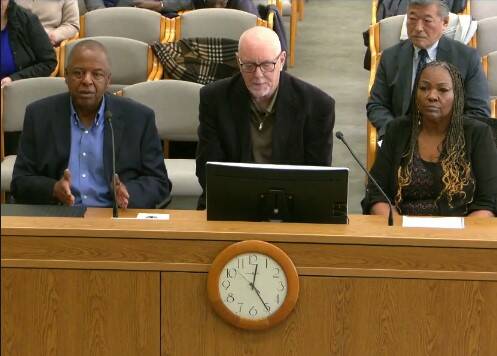With words like downturn, recession and dot-bomb being bantered around the business world, it seems natural to expect the Internet to also be put on a deathwatch. According to Forrester Research, the death of the Web is inevitable.
It is uncertain times for businesses workers who have staked their careers and families on the future of the Internet. But is the Web dead? Major prediction researchers claimed the Web would be replaced by something called the executable Internet. The Internet will not disappear as much as evolve as the XNet will move it to a new expansion, using the PC and other devices to house code, rather than the Net.
Outspoken tech trend commentator Frank Catalano recently weighed in with his perspective on the future of the Internet. Catalano, a South Sound resident, has an on-air Tech Buzz segment for the morning news show on Fox-affiliate KCPQ-TV (Q13) in Seattle. He is also a contributing columnist for the Puget Sound Business Journal, a strategic marketing consultant for tech firms and co-authored Internet Marketing for Dummies.
Q: Frank, how does your experience influence your perspective on the future of the Internet?
A: Im basically a commentator and analyst on whats happening in the technology world. Im on camera at KCPQ-TV several days each week talking about what all this stuff really means. Its easy to say something is dying or something is coming back, but I try to put it into perspective. You cant really draw a conclusion from an individual event. We need to see how the events all fit together.
I like to think of myself as standing in the middle of an intersection with large trucks marked IBM, Dell and Microsoft whizzing by and Im trying to look at the traffic pattern without getting squished.
Q: You do a lot of consulting gigs for technology companies all over the country. Why are you so busy in the face of this dot-com collapse?
A: Part of it has to do with the fact that I became a consultant in the tech area doing industry analysis and strategic marketing since 1992. So Ive seen several of these boom/bust cycles.
Q: So why is Forrester Research saying the Internet is dead?
A: I think its because they forecast other huge multi-billion dollar industries that turned out to have a billion dollar number of zero behind them and theyre trying to find something to replace that business. Theyre basically saying in this big research report that the Web is dead and will be replaced by this thing called the executable Internet, which really just appears to be the Web without a toolbar. In other words, its the Internet that resides on your personal computer or your PDA. It isnt brain surgery to figure that out. I applaud Forrester for figuring out what most of use figured out five years ago.
Q: Clarify for us what the executable Internet is.
A: For example, if you use the Live Update feature of Norton Anti-Virus software, thats the executable Internet. Its something that basically goes to the Internet, gets information, comes back without your really knowing that its doing that. Its been this way for e-mail. You dont use the browser to get your e-mail – unless youre getting Web-based mail.
Q: Would you say theyre correct about the death of the Web?
A: Im pleased to see that Forrester decided to announce the death of the Web by following it up with action by laying off 15 percent of their own staff whove been hyping the Web.
Q: Youre a history buff. Is what is going on with the Internet new or is this really expected?
A: This is a cycle. Over the past quarter century, since the PC was formed, the whole idea of technology boom and bust has repeated itself at least four times, and probably many more little boomlets.
It all began in the mid-1970s with the first personal computers. There were a lot of companies whose names now will be meaningless for most people: Altair, Eagle, Kpro, Osborne. They were all coming up with the first personal computers. They all had completely different or incompatible operating systems. What happened was that after a boomlet in the mid-1970s, most of these companies went under. The same thing happened again in the mid-1980s. You finally have some rational operating systems that survived this first boom. Everything settled down to either DOS or Apple. So now companies could make software to sell retail for a simple number of operating systems. That led to companies like Software Publishing Corp. and others that you don’t hear about anymore. You had the expansion. You had the contraction.
In the early 1990s, you had a similar type of boom in multimedia CD-roms. A lot of companies sprang up to take advantage of CD-roms that were becoming standard equipment and sound cards. Most of them died. And the same thing happened with the Internet in the late 90s.
It has been a repeating cycle. What happens is a new part of technology is introduced. Everybody gets excited a little too early. Then you have the glut of the technology. Then you have the culling. Most of the companies that ran in for the gold rush go away, but guess what? The technology doesnt.
The technology lasts, period. Personal computers are still here. CD-roms and multimedia are still here. Packaged software is still here. And the Internet will still be here. It has become part of the basic fabric.
Q: So you laugh at the unconfirmed reports that the Internet is dead?
A: Its a pretty lively corpse, isnt it? Gardner Group just released numbers showing 65 million American households consider themselves active users of the Internet. There are only 100 million U.S. households. And 90 percent of those folks say they would be highly unlikely to give it up, even if subscription fees went up and the economy turned bad. Thats hardly the death of the Internet.
Unlike the other booms, the Internet boom wasn’t really about technology. Much of the Interest was driven by greed. Its not that people are less interested in technology because of all these failures; it’s that people havent figured out how to make a quick buck off of day trading on the Internet or stock options that were highly inflated in value.
Q: Is the Internet going to come back?
A: Yes, but it never really went away. Its bottomed out. I think were going to have a wide bottom for a while. Then it will start to go back up, probably some time next year.
Q: Media hyped the Internet and then bombed it. Is the media going to start portraying the net in a positive light?
A: The news media hyped the net because the PR companies paid by the venture capitalists and the dot-coms told them to hype it.
Q: Will the news media start covering it rationally?
A: I think so. It will become part of the ongoing consumer and business coverage. For example, the Seattle Times cut their Personal Technology section back from being a big supplement. The Seattle Weekly had a special tech section that has now been merged with the music section and now seems to have gone away entirely.
Im reminded of something the head of products at Apple Computers said: When you walk into someones house now, what do you see: the presence of a telephone or the absence of a telephone? You dont see enthusiasts magazines and special sections in the papers about telephones. The Internet is part of the background. Its not new and special.
A full audio interview with Frank Catalano can be heard at:
http://www.webtalkguys.com in the Archived Shows area.
Catalano can be reached at:
catalano@catalanoconsulting.com.
His Web site is at:
http://www.frankcatalano.com.
His Tech Buzz television segments are on Monday mornings on Q13 Fox-TV Seattle.
Dana Greenlee writes about technology every Friday in the Index. She is also co-host of WebTalkGuys, a radio talk show featuring technology news and interviews. The show is broadcast on CNET Radio in San Francisco/San Jose, Boston and over the XM Satellite Radio Network Channel 130 every Saturday at 10 am PST and Sunday at 7pm PST. WebTalkGuys is also webcast on the Internet on demand from: http://www.webtalkguys.com.
It is also streamed live over:
http://www.cnetradio.com (CNET Networks).






